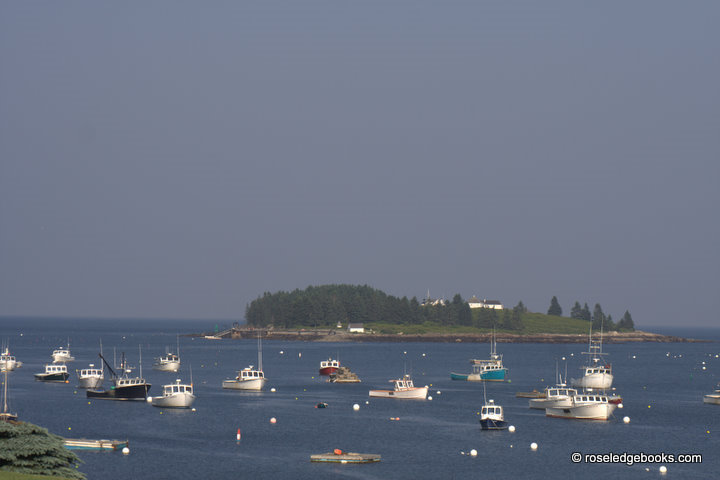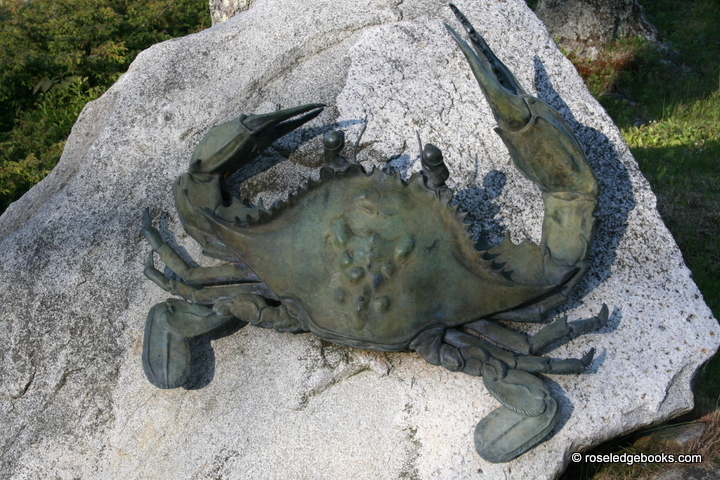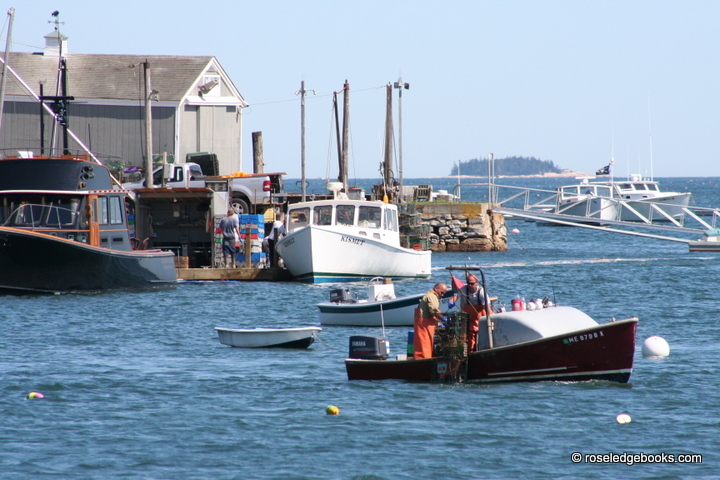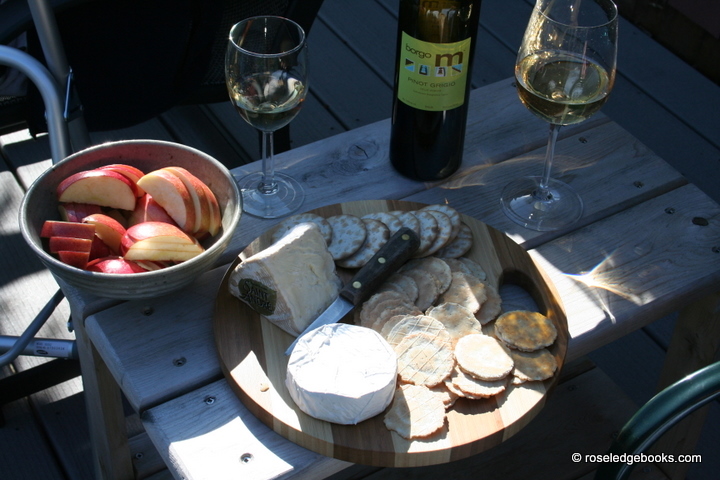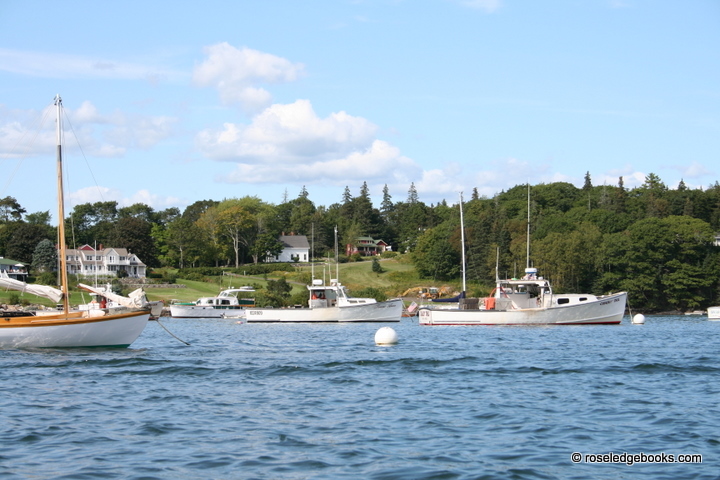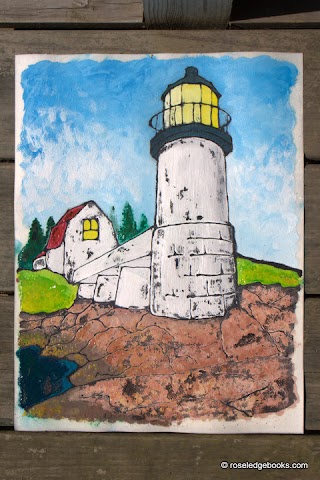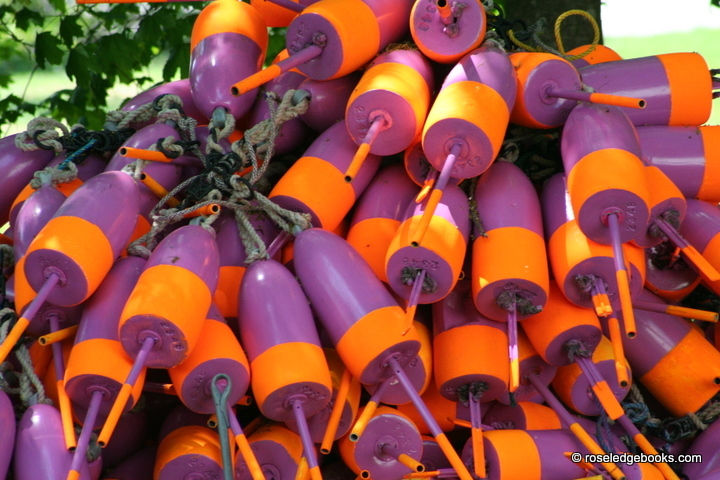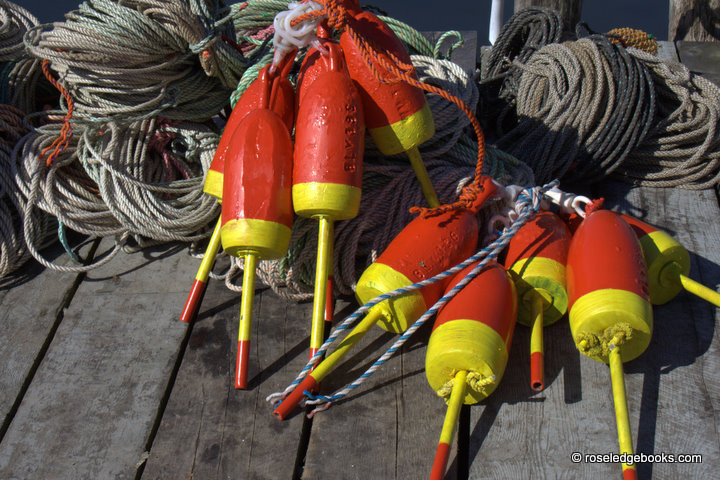It is a glorious afternoon. (Check webcam shadows.) Iffy morning makes it all the sweeter. Iffy last two weeks makes it seem like a miracle.
A rogue poplar is poking through the porch lattice in exactly the right spot to provide shade during the excessively sunny hours of 10:30 to 2:30 each day, after which the aging and asymmetrical other rogue poplar that you see in the webcam does its shade-tree duty. This is very good news because I refuse to install a mechanical umbrella. Roseledge is a cottage, after all, and I already have a toaster-oven. Thank you, Mother Nature.
Tenants Harbor links to my latest reads are promising. Daniel Silva’s Portrait of a Spy includes Minneapolis, my winter place, as a potential terrorist base. An unfortunate reference, but a definite link through me. William Martin’s City of Dreams mentions Henry Knox who, after the Revolutionary War and with his position but no money, married hugely landed Lucy Fluker (or is it Flucker?) and lived just down the road in Montpelier at the corner of Highways 131 and 1, a definite 10-mile link. William Martin also mentions J[ames] Monroe Hewlett whose murals are on the walls of the Bank of New York; now I have to check with RB reader Hewlett to see how many “degrees” it takes to make the link. If this doesn’t work, Momroe Hewlett traveled to Paris in 1931 with N. C. Wyeth who already owned Eight Bells in Port Clyde, just down the road from TH. And Andrew Wyeth’s current exhibit at the Farnsworth is of his Port Clyde watercolors from the 1930’s, so that’s a Wyeth/Wyeth (Wyeth-squared?) link. I’m going to assume six degrees are still a standard, even though an earlier blog noted that 4.17 (I think) is the new “usual.” I love this stuff.
Today was “stepping the mast day” day at the East Wind Inn wharf. I love knowing that “stepping” is the verb to use. Bring on the many masts of high summer. The 4th is nearly upon us.
The East Wind Inn is for sale. (The Chandlery, part of the East Wind, is the building sticking out at the bottom right of the webcam image.) Surely it is the most perfect 300’ of frontage ever enjoyed by porch sitters who look out on harbor comings and goings, ever changing tides and tidal flats, and, for early risers, spectacular sunrises over the open end of the harbor. It would make a great Alumni Center! Just think about networking on the porch, lifelong learning Chatauqua-like sessions, workshops, or “independent study” of whatever strikes one’s fancy. And Roseledge Books, of course, will be ever ready to do it’s part.
This is what happens when friends from away and with ties to the same college get together, then try to figure out how to share the glory and be here longer and more often.
First customers have come. Whew! Old friends new to Maine and RB, old friends not new to Maine or RB but away for a while, and old friends passing through again this year after a Roads Scholar week in Campobello. No surprise then that Frankie’s Place by Jim Sterba was a perfect withdrawal read for a Midwesterner who had just enjoyed hiking in Acadia or that Arundel by Kenneth Roberts was right for someone who wanted some history and a related trail-of-sites to hike afterwards, or that Seaworthy by Linda Greenlaw will bring someone already grounded up-to-date.
Business is slow. I have the newly fixed and enhanced ROSELEDGE BOOKS sign rehung on the tree at the corner of Sea and Mechanic Streets, so you can’t be lost. Where are you?


